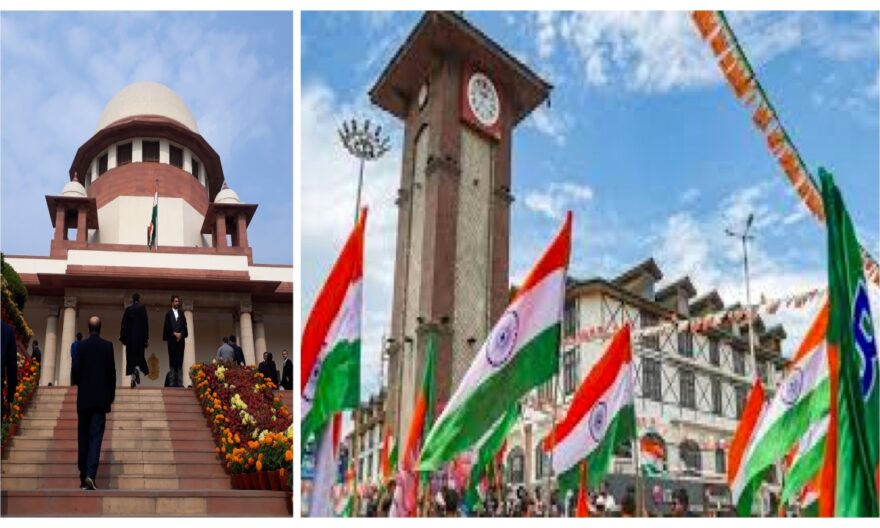
The Central Goverment has filed an affidavit in Supreme Court on Monday defending its action in Jammu Kashmir. On Tuesday Supreme Court is scheduled to hear batch of Petitions challenging the abrogation of Article 370 in Jammu and Kashmir.
In an affidavit filed under the signature of Prashant Lohkhande, Joint Secretary, Ministry of Home Affairs, the Government of India has said that since 2019, the entire region has witnessed an unprecedented era of peace, progress and prosperity.
“Since 2019, the entire region has witnessed an unprecedented era of peace, progress and prosperity. Life has returned to normal in the region after over three decades of turmoil,” the Central government claimed in the affidavit, filed before the Supreme Court.
The Centre argued that schools, colleges, universities, hospitals and other public institutions are functioning efficiently without any strikes or any kind of disturbances during the last three years.
“The earlier practice of daily hartals, strikes, stone pelting and bandhs are things of the past now,” the Central government told the Supreme Court in its affidavit.
The Supreme Court is scheduled to hear on Tuesday a batch of pleas challenging the abrogation of Article 370.
After the constitutional changes, democratically made, major steps were taken to strengthen grassroots democracy. For the first time in its history, a duly elected 3-tier Panchayati Raj System has been established in Jammu and Kashmir. Elections for the members of the District Development Councils were held in Jammu & Kashmir in November-December 2020, the Centre, in its fresh affidavit said.
It said that stone pelting incidents are thing of past.Stone pelting incidents which were as high as 1767 in 2018 are 0 in 2023.
The Central government said that the entire region of J&K including Ladakh has witnessed an unprecedented era of peace & development.
The historic step brought stability, peace, development & security in the region, it said.
The Centre said that resolute anti-terror actions have resulted in the dismantling of the terror eco-system which is reflected in a significant drop in terrorist recruitment from 199 in the year 2018 to 12 in the year 2023 till date.
However, the hearing began in December 2019, exactly four months after the abrogation of Article 370 and the reorganization of Jammu and Kashmir. Although the court agreed that a panel of five judges could decide the issues raised in the petitions, the matter was yet to be heard. However, it was brought before the Chief Justice of India several times. In April 2022, when this was pointed out, the then Chief Justice NV Ramana refused to give a definite answer. In September the same year, Chief Justice UU Lalit agreed to list the petitions, but his tenure was short-lived. The current Chief Justice Chandrachud has indicated a willingness to determine the matter on two separate occasions.




